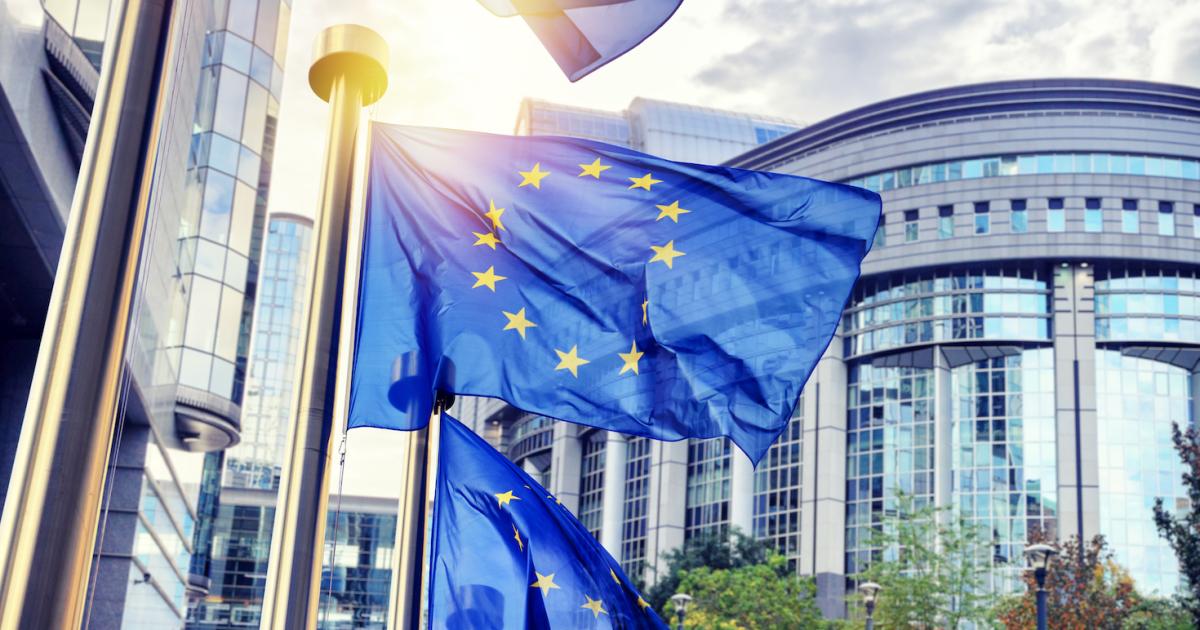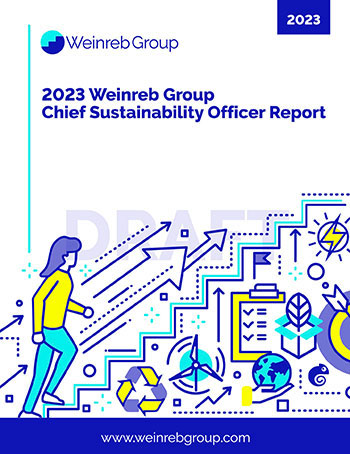
European lawmakers have passed a flagship law that aims to turbocharge the recovery of nature across the bloc, after supporters of the bill narrowly defeated opposition to the legislation from conservative MEPs.
On Wednesday, members of the European Parliament approved the landmark Nature Restoration Law, which commits each EU country to take measures to restore at least 20 percent of degraded terrestrial and marine ecosystems by 2030, rising to 60 percent by 2040 and 90 percent by 2050. It also commits governments to providing financial support to impacted farmers and fishers to help ensure the targets are met.
A coalition of Socialists & Democrats, the Left, the Greens, and Renew Europe MEPs secured narrow victory for the bill, with 336 votes in favor, 300 against and 13 abstentions.
The passage of the law — a major plank in European Commission President Ursula Von der Leyen’s European Green Deal — brings to a close months of fierce debate within the European Parliament.
Conservative lawmakers had pushed to kill the legislation, arguing it would harm farmers, fishers, foresters and businesses, and did not provide enough clarity over how the delivery of the targets would be funded.
The backlash against the proposed law — led by the European People’s Party to which European Commission President Ursula von der Leyen belongs — led to the initial text being significantly watered down through a series of amendments.
A proposal to restore agricultural ecosystems was cut, and a line added to delay the law’s full implementation until a formal assessment of Europe’s food security is completed. Meanwhile, a proposal to increase overall targets to restore at least 30 percent of degraded ecosystems by the end of the decade — an amendment that would align the legislation with the global agreement to protect 30 percent of land and sea by 2030 that was finalized at last year’s COP15 Biodiversity Summit — failed to pass.
However, supporters of the bill insisted it still represented a significant step forward for nature protection efforts across the bloc.
“The Nature Restoration Law is an essential piece of the European Green Deal and follows the scientific consensus and recommendations to restore Europe’s ecosystems,” said EU rapporteur and MEP César Luena after the vote. “Farmers and fishers will benefit from it, and it ensures a habitable earth for future generations. Our position adopted today sends a clear message.”
It comes as pressure mounts on lawmakers in the U.K. and across Europe to ramp up protection of nature, following the COP15 Biodiversity Summit where governments agreed to halt and reverse nature loss by 2030 through the new Kunming-Montreal Global Biodiversity Framework. A 2022 report by the European Commission found that more than 80 percent of European habitats were in less than favorable or poor shape.
Left-wing parties argued legislation for restoring ecosystems was necessary to combat climate change, tackle biodiversity loss, ensure the long-term viability of European soils, enhance climate resilience and bolster food security by making European agricultural production more resilient and sustainable.
Conservative groups responded by arguing the law’s provisions would threaten the livelihoods of European farmers and fishers, disrupt supply chains, decrease food production, hamper renewable energy production and push prices up for consumers — claims that were fiercely contested by NGOs, climate scientists, the renewable industry and parts of the private sector.
Organizations and individuals from across the green economy today celebrated the passage of the nature recovery legislation, despite the final text being watered down.
“Stop for a moment and reflect on a really big victory for nature,” financier and environmentalist Ben Goldsmith wrote on Twitter. “Today the EU Parliament has passed a grand new nature restoration law. This is a good day.”
Eva Zabey, CEO of the Business for Nature coalition, also welcomed the decision. “Although this is a less ambitious version than the Commission originally proposed, it provides a foundation for the negotiations between the parliament and the council to finalize the law,” she said. “Hundreds of businesses have been asking for ambitious policies to tackle the negative impacts of the dual climate and nature emergencies. We now look to EU leaders to urgently progress the restoration law to put Europe on a trajectory towards an equitable, nature-positive and net zero future.”
Before the vote, CEOs and executives from more than 80 companies, including Danone, H&M, Holcim, Iberdrola, Ikea, Kellogg, Schroders, Salesforce and Tetra Back, signed an open letter urging EU leaders to adopt the ambitious legislation.
Tom Ludwig, head of agriculture at NatureMetrics, said the vote was a “clear signal” of the EU’s commitment to environmental leadership and had “brought the EU in line with the direction that business is already moving towards.”
“From our customer base we also know that organisations across a wide spectrum, from banks and NGOs to mining and renewable energy, are doing great work in measuring their nature-positive progress,” he said. “Businesses know that we must protect our natural resources to build a sustainable future and the European Parliament joins this group today.”
The law will now face another round of trilogue negotiations, which will see the European Parliament, Commission and Council come together to agree on the final text, under the guidance of the Spanish Presidency of the European Council.
“We very much welcome the positive vote on Nature Restoration Law by European Parliament,” tweeted Virginijus Sinkevičius, EU Commissioner for Environment, Oceans and Fisheries. “We look forward to launch trilogues & conclude the agreement by end of the year. The EU Commission remains fully committed to help finding balanced compromise solutions. A good day for Europe!”
THIS is what it looks like when nature wins! 👇💚
Thanks to all the MEPs, especially from @GreensEFA, who fought tirelessly to #RestoreNature!
In 2024: remember that your vote makes a difference!#NatureRestorationLaw pic.twitter.com/BzPyOz9AMR
— European Greens (@europeangreens) July 12, 2023
- SEO Powered Content & PR Distribution. Get Amplified Today.
- PlatoData.Network Vertical Generative Ai. Empower Yourself. Access Here.
- PlatoAiStream. Web3 Intelligence. Knowledge Amplified. Access Here.
- PlatoESG. Automotive / EVs, Carbon, CleanTech, Energy, Environment, Solar, Waste Management. Access Here.
- BlockOffsets. Modernizing Environmental Offset Ownership. Access Here.
- Source: https://www.greenbiz.com/article/good-day-europe-eu-lawmakers-pass-landmark-nature-restoration-law
- :has
- :is
- :not
- :where
- $UP
- 12
- 13
- 20
- 2022
- 2024
- 2030
- 2050
- 30
- 300
- 60
- 8
- 80
- 90
- a
- across
- added
- adopt
- adopted
- After
- against
- agreed
- Agreement
- Agricultural
- agriculture
- aims
- align
- All
- already
- also
- Although
- ambitious
- amendments
- an
- and
- Another
- approved
- ARE
- argued
- AS
- assessment
- At
- back
- balanced
- Banks
- base
- BE
- been
- being
- belongs
- ben
- benefit
- between
- Big
- Bill
- bolster
- Brings
- brought
- build
- business
- businesses
- by
- celebrated
- ceo
- CEOs
- chains
- change
- claims
- clarity
- clear
- Climate
- Climate change
- Close
- combat
- come
- comes
- commission
- commissioner
- commitment
- committed
- Companies
- Completed
- compromise
- conclude
- Consensus
- conservative
- Consumers
- Council
- country
- customer
- Cut
- day
- deal
- debate
- decade
- decision
- decrease
- delay
- delivery
- Democrats
- Despite
- DID
- direction
- Disrupt
- doing
- down
- each
- earth
- economy
- Ecosystems
- efforts
- end
- energy
- enhance
- enough
- ensure
- ensures
- Environment
- environmental
- equitable
- especially
- essential
- Ether (ETH)
- EU
- Europe
- European
- european commission
- European Parliament
- executives
- Face
- Failed
- farmers
- favor
- favorable
- fierce
- final
- finalize
- finalized
- financial
- finding
- flagship
- following
- follows
- food
- For
- For Consumers
- formal
- Forward
- found
- Foundation
- Framework
- from
- full
- fully
- funded
- future
- generations
- Global
- good
- Governments
- great
- Green
- Group
- Group’s
- guidance
- H&M
- had
- harm
- Have
- he
- head
- help
- How
- HTTPS
- Hundreds
- ikea
- impacted
- Impacts
- implementation
- in
- Including
- Increase
- individuals
- industry
- initial
- IT
- Joins
- jpg
- Kill
- Know
- Land
- landmark
- Last
- Last Year
- launch
- Law
- lawmakers
- leaders
- Leadership
- least
- Led
- left
- Legislation
- less
- like
- Line
- long-term
- Look
- LOOKS
- loss
- major
- MAKES
- Making
- Marine
- Meanwhile
- measures
- measuring
- Members
- MEP
- message
- met
- Mining
- moment
- months
- more
- moving
- much
- must
- narrow
- Natural
- Nature
- necessary
- negative
- negotiations
- net
- New
- NGOs
- now
- oceans
- of
- on
- open
- opposition
- or
- Organisations
- originally
- our
- over
- overall
- parliament
- parties
- parts
- party
- pass
- passed
- People
- percent
- piece
- plato
- Plato Data Intelligence
- PlatoData
- policies
- poor
- position
- positive
- president
- pressure
- Prices
- private
- private sector
- Production
- Progress
- proposal
- proposed
- protect
- protection
- provide
- provides
- providing
- Push
- pushed
- put
- Ramp
- really
- recommendations
- recovery
- reflect
- remains
- remember
- Renewable
- renewable energy
- report
- represented
- resilience
- resilient
- Resources
- restoration
- restore
- restoring
- reverse
- rising
- round
- s
- Said
- salesforce
- scientific
- scientists
- SEA
- sector
- Secured
- security
- see
- sends
- Series
- Shape
- she
- Signal
- significant
- significantly
- Solutions
- Spanish
- Spectrum
- Step
- Still
- Stop
- Summit
- supply
- Supply chains
- support
- supporters
- sustainable
- sustainable future
- tackle
- Take
- targets
- terrestrial
- than
- that
- The
- The Greens
- the Law
- their
- this
- threaten
- Through
- tirelessly
- to
- today
- together
- towards
- trajectory
- U.K.
- under
- until
- urging
- Ursula Von Der Leyen
- version
- very
- viability
- victory
- von
- Vote
- votes
- was
- we
- Wednesday
- welcome
- welcomed
- were
- What
- when
- which
- WHO
- wide
- will
- with
- within
- Work
- would
- wrote
- XML
- year
- Your
- zephyrnet
- zero









